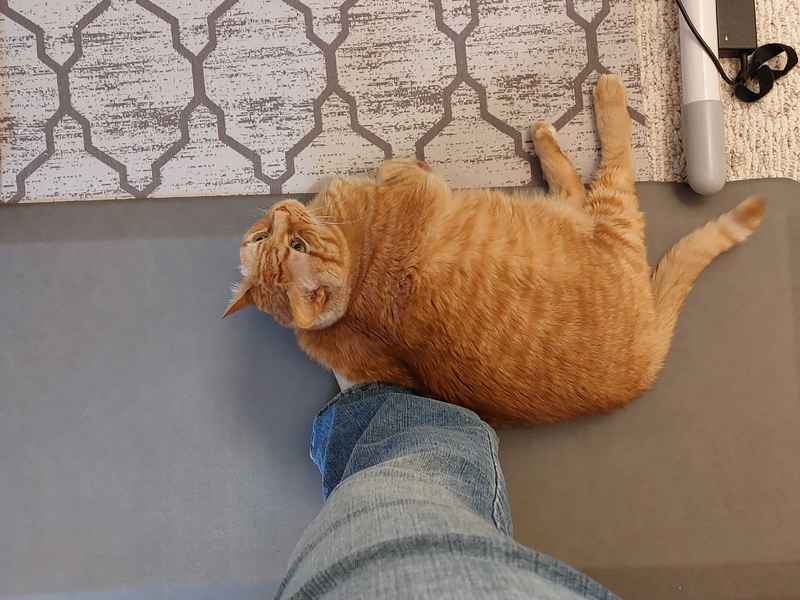11 Words, Phrases, and Ideas to Help You Chip Away at Your Perfectionism and Learn (Even) More German

Elf! Elf! Eleven! Elf!
11 Jahre GermanWithNicole.com! Diese Folge widme ich meiner Kundin Frau A., die seit achteinhalb Jahren bei mir Deutsch lernt und sie lernt sehr, sehr viel Deutsch. Hut ab, Frau A.!
This episode is dedicated to Frau A., my longest-standing client, at 8 and a half years and in that time she has learned an incredible amount of German. Hats off to you! Hut ab!
N.B. While the GermanWithNicole.com Podcast no longer exists, you can still hear all of the audios here on the blog. The audios are available on the blog posts published between August 1, 2021 and October 1, 2024. Viel Spaß beim Hören!
If you're serious about learning German and you have a strong perfectionistic streak which keeps tripping you up (remember, I know exactly how that goes), you might find comfort in...
Nummer 1: GUT GENUG.
GUT in German means GUT. It doesn't mean anything but GUT. And GENUG means enough, so if it's GUT GENUG, it's GENUG of the GUT. Gut genug!
This is one of the reasons why you hear “Das ist genug für heute” at the end of most every episode here—because it's how I say to myself “Das ist gut genug.”
Numbers 2-4 are based on a document I once read to help me chip away at some of my perfectionism, and it did help. However when I searched online for it today I couldn't find it. It's a typed document (yes, with a typewriter a Schreibmaschine), type-os and all. The author is Bill Borchert and the document is called Perfectionism and the Pursuit of Unhappiness. In it, he writes about what he calls IB's, Irrational Perfectionistic Ideas, and I've adapted several of them for my clients in one of their video courses. Here are three of them:
Nummer 2: I must succeed and perform exceptionally well in all German exercises and classes. If not, I'll turn into an inferior being.
There are none such expectations like that here. Some classes and exercises go well, some go poorly, and many are somewhere in the middle. No matter how an exercise or a class goes, you are still appreciated.
If it helps, one of my German teachers once handed me back a one-page text I'd written and he said, “Das können Sie besser machen.” “Das können Sie besser machen.” “You can do better than that.” “Das können Sie besser machen.” OUCH. Well, I didn't perform exceptionally well on that exercise, but I kept at it. And here we are.
Nummer 3: It must be easy for me to learn German, and if it's ever not easy, I'll whine, moan, host a pity party, and procrastinate.
Most things in life worth doing aren't completely easy. Let's be realistic: I have a gift for languages and it was still quite an arduous path for me to learn German!! German wasn't made for you, it was made by German speakers. So remember that you're learning something that's new to you, and mark your progress based on your progress, not against a native speaker's abilities.
Nummer 4: As long as Frau Warner is happy with my progress, that's enough.
Nein. Das ist nicht rightig.
In this video course, my clients discover their ideal learning range, and this idea is reflected by a lot of yoga and fitness instructors, who talk about what you can do well today. Have you done “gut genug” with the time, energy, and resources you have today? You have to answer that question. If you're content with what you could do today or in sum this week, then that's good 'nuff. Gut genug.
Numbers 5, 6, and 7 all have to do with bringing your own creativity to the table. Here are three illustrative examples of ways different clients have used their own creativity to their own advantage in German learning.
Nummer 5: die Artikeln, die Artikeln – the articles, die Artikeln
One client needed a different way to view the der/die/das/die articles in all four cases, so she sewed herself a quilt with all 16 articles on it. No joke. It was beautiful! die Artikeln
Nummer 6: die Kreativität – die Kreativität – creativity – die Kreativität
One of my clients spends loads of time tracing pictures onto vocabulary cards with different Stabilo pens. They're beautiful! And what a wonderful way to create more enjoyment through the hard work of vocabulary learning? die Kreativität
Nummer 7: der Wortschatz – der Wortschatz – vocabulary, literally “Word treasure” - der Wortschatz
Another client crafted her own 'Wortschatzkiste' (vocabulary box) and it looks like a treasure chest. der Wortschatz
Nummer 8: sich bemühen sich bemühen - to endeavor, to make an effort - sich bemühen
People, especially perfectionists, frequently underestimate their efforts. Do you show up for class? That's the key effort. Did you work through the exercises, even if you needed the answer key to help you? That is valid effort. Gut gemacht! sich bemühen
Connor macht sich bequem und liegt auf meinem Fuß.

Nummer 9: sich überlegen sich überlegen - reflect, ponder, consider - sich überlegen
What would it be like if, each time you work on your homework, you also simply reflected upon it? Reflection time, especially in the absence of the critical inner voice, can bring you a lot of internal recognition for your efforts. Time spent reflecting frequently leads to simplicity, too. sich überlegen
Nummer 10: It's OK for your German to be quietly remarkable.
It's OK for your German to be quietly remarkable.
It's OK for your German to be quietly remarkable.
You may simply 'do' awesome German learning. You never need to go online and talk into the digital abyss about how great your German is. You may quietly add your German test certification to your resume without making it a big announcement. You need never gloat or brag about your latest trip to the German-speaking countries. You may simply, quietly, remarkably, enjoy it all.
It's OK for your German to be quietly remarkable.
Nummer 11: Man lernt nie aus. Man lernt nie aus. We live and we learn, then we live and we learn some more. Man lernt nie aus.
This is hard to translate, because “You're never done learning” sounds ominous, and “You never stop learning” is so obvious it's patronizing. Auslernen, however, is to complete a course of training. And some courses are truly interesting. Perhaps instead, we could translate this as “There's always more to explore, and thus, also to learn.”
Man lernt nie aus.
If you'd like to practice your good German manners AND your German, I'd love it if you'd send me a congratulatory email USING AS MUCH OR AS LITTLE GERMAN AS YOU KNOW via the contact page.
Categories
- A1 (70)
- A2 (55)
- B1 (47)
- B2 (24)
- C1 (22)
- Deutsch lernen (82)
- Einkaufen (15)
- Essen (12)
- Grammatik (24)
- Hören (14)
- Landeskunde und Kultur (50)
- Lesen (11)
- Musik (5)
- Nachrichten (4)
- Podcast (66)
- Pronunciation (3)
- Schreiben (4)
- Schwäbisch (4)
- Spiele und Spaß (Games and Fun) (12)
- Sprechen (12)
- Vokabeln (41)
- Video (13)
Would you like to hear about future German classes with Frau Warner?
With the E-Post, you'll receive information on German class registration and goings-on in German classes, all written by Frau Warner. You'll receive an email on Tuesdays, plus an extra email or two when class registration opens or there's something new.
If you use Gmail: please check your "promotions" folder.
2 comments
Herzlichen Glückwunsch zu deinem 11. Jahr GermanWithNicole!
Ich bin dankbar für die Gelegenheit, mit dir Deutsch zu lernen, Nicole. Sie sind einfach die beste Lehrerin. Ich fühle mich in deinem Klassenzimmer akzeptiert und dass du wirklich an meinem Deutschlernen interessiert bist. Sie verwendest Methoden und Materialien, um jeden Studenten zu lernen. Und du bist unendlich kreativ mit GermanWithNicole und als Lehrerin.
Deutsch zu lernen ist sicherlich eine Herausforderung (die, das, der, den, dem, des usw.!), aber es ist sehr interessant und macht Spaß. Es macht mir Freude mit dir zu lernen!
Vielen herzlichen Dank, Frau A!
Leave a comment